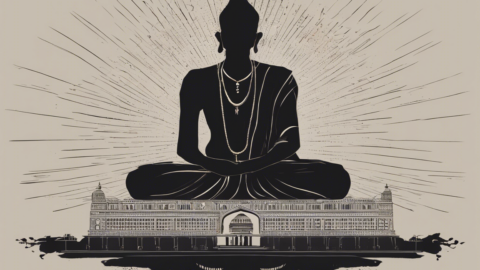Introduction
Black Day is an observance that holds great significance in the history and culture of India. It is a day marked by solemn remembrance and reflection, often associated with key events that evoke feelings of sorrow, loss, or injustice. Understanding the significance of Black Day in India requires delving into its historical context, the events that led to its observance, and its lasting impact on society and national consciousness.
The Origins of Black Day in India
The concept of Black Day in India can be traced back to various historical events that have left a deep impact on the nation. One of the most well-known instances is the Jallianwala Bagh massacre. On April 13, 1919, British troops under the command of Brigadier-General Reginald Dyer opened fire on a crowd of peaceful protesters in Jallianwala Bagh, Amritsar, resulting in the deaths of hundreds of men, women, and children. The brutality of the massacre and the senseless loss of lives have made it a symbol of colonial oppression and injustice, leading to the observance of Black Day on April 13 each year.
Another event that has contributed to the observance of Black Day is the Kashmir conflict. October 22 is marked as Black Day in solidarity with the people of Jammu and Kashmir following India’s claims of the region as an integral part of its territory. This day serves as a reminder of the unresolved political and humanitarian crisis in Kashmir, with both India and Pakistan laying claim to the region, leading to decades of conflict and unrest.
Significance of Black Day Observance
The observance of Black Day serves multiple purposes in India. It is a way to honor the memory of those who lost their lives in tragic events and to pay tribute to their sacrifices. It also serves as a reminder of the injustices and atrocities committed in the past, ensuring that they are not forgotten or overlooked.
Black Day observances provide a platform for historical remembrance and education, allowing future generations to learn about the dark chapters of India’s past and reflect on the lessons that can be drawn from them. By acknowledging and confronting the uncomfortable truths of history, Black Day helps foster a sense of empathy, solidarity, and social responsibility among the population.
Moreover, Black Day observances often shed light on unresolved conflicts or grievances, drawing attention to issues that require redressal or reconciliation. Whether it is seeking justice for victims of past atrocities, advocating for political solutions to long-standing disputes, or addressing systemic injustices, Black Day serves as a call to action for change and progress.
Impact of Black Day Observance
The observance of Black Day in India has a profound impact on society and national consciousness. It serves as a catalyst for public discourse and activism, prompting discussions on history, identity, human rights, and justice. Black Day events, such as memorial services, rallies, cultural performances, and exhibitions, mobilize people to engage with challenging issues and work towards a more inclusive and equitable society.
Furthermore, Black Day observances reaffirm the values of democracy, freedom, and solidarity. They emphasize the importance of upholding fundamental rights and liberties, standing up against oppression and injustice, and promoting peace and reconciliation. By coming together to commemorate Black Day, Indians demonstrate their commitment to building a better future based on the lessons of the past.
In addition, the impact of Black Day observance extends beyond national boundaries, resonating with global audiences and highlighting international concerns related to human rights, conflict resolution, and historical justice. As India reflects on its own black days, it also contributes to a broader dialogue on shared experiences of struggle, resilience, and hope for a more just and peaceful world.
FAQs about Black Day in India
- What is the significance of observing Black Day in India?
-
Black Day observance in India holds significance as a way to remember historical events that evoke feelings of injustice, oppression, or loss. It serves as a platform for education, remembrance, and advocacy for justice and reconciliation.
-
Which are some key events associated with Black Day observance in India?
-
The Jallianwala Bagh massacre and the Kashmir conflict are among the key events associated with Black Day observance in India, marked on April 13 and October 22, respectively.
-
How do Black Day observances impact society and national consciousness in India?
-
Black Day observances spark public discourse, activism, and reflection on historical injustices, fostering empathy, solidarity, and a sense of social responsibility among the population. They contribute to a deeper understanding of India’s past and its implications for the present and future.
-
What are some common ways in which Black Day is commemorated in India?
-
Black Day is often commemorated through memorial services, rallies, cultural performances, exhibitions, and educational programs that highlight the significance of historical events and promote dialogue on justice, peace, and democracy.
-
How can individuals participate in Black Day observances in India?
- Individuals can participate in Black Day observances by attending events, sharing information and resources related to historical events, engaging in discussions on social media or community platforms, and supporting initiatives that focus on justice, reconciliation, and human rights.
Conclusion
In conclusion, the observance of Black Day in India is a powerful expression of remembrance, reflection, and resilience in the face of past injustices and conflicts. By honoring the memory of those who suffered and advocating for a more just and peaceful future, Black Day serves as a testament to the enduring spirit of the Indian people and their commitment to upholding the values of truth, justice, and democracy. Through education, activism, and solidarity, Black Day observances continue to shape national consciousness and inspire collective action towards a more inclusive and equitable society for all.
